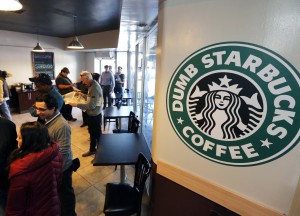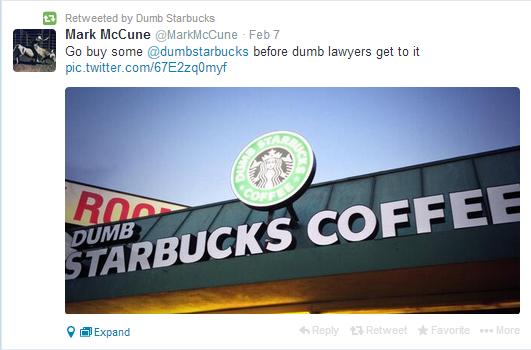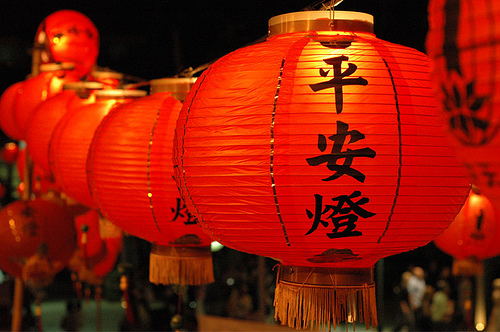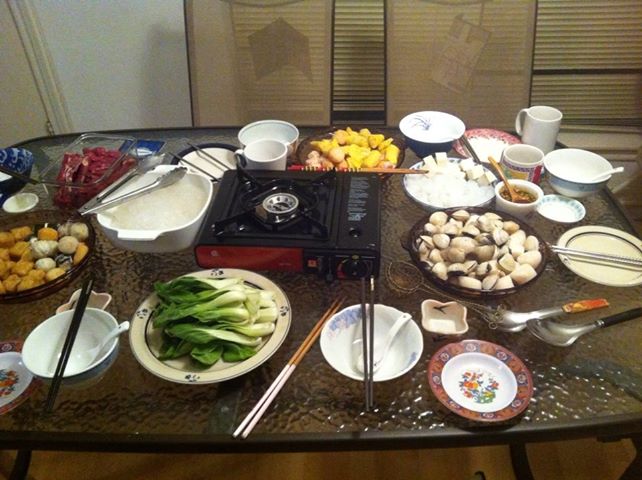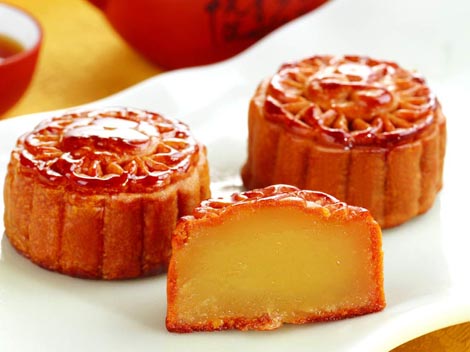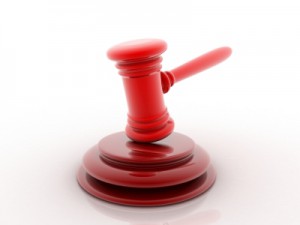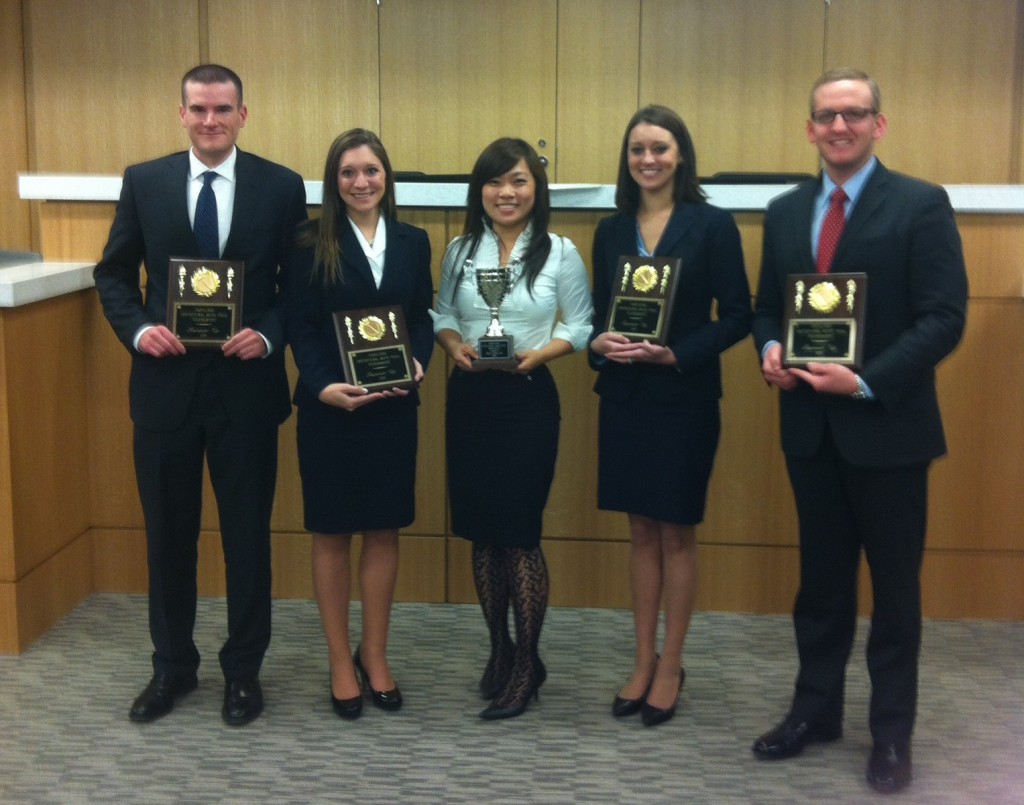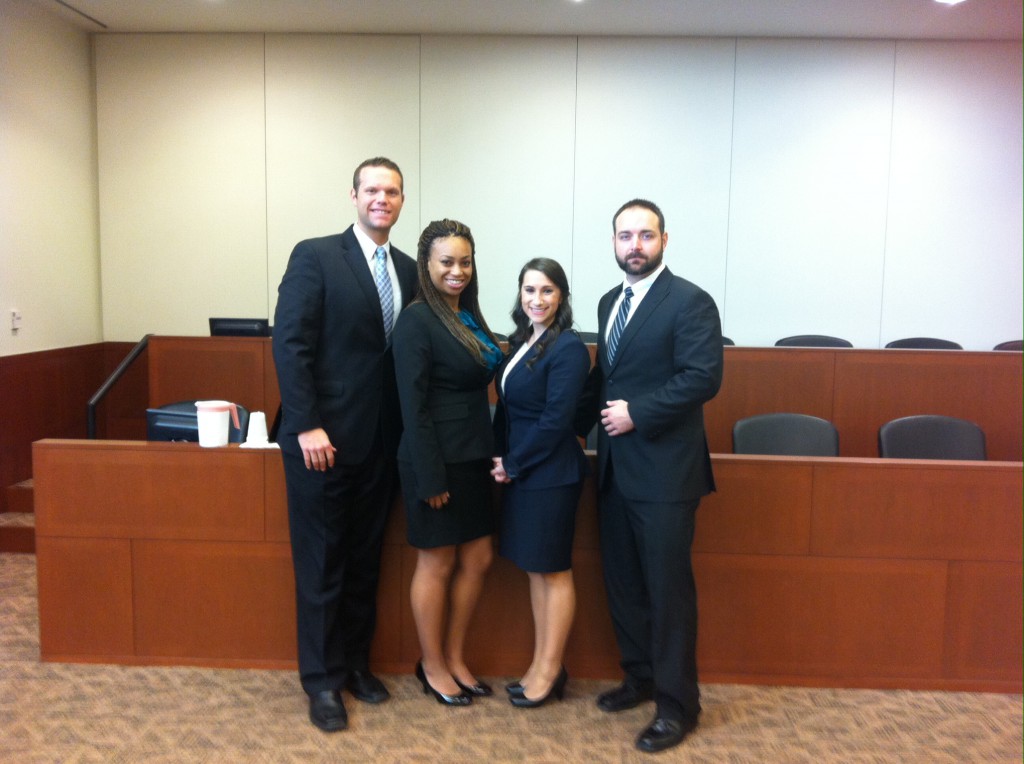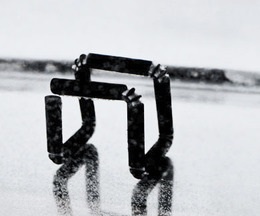“Dumb Starbucks” is a hilarious attempt at the Fair Use Doctrine.
It’s not every day that we at the Yau Law Firm get a real good laugh about trademarks (because lawyers are devoid of humor, after all…), but we certainly got a good chuckle out of “Dumb Starbucks,” which we believe was the purpose for this store’s existence (albeit very short).
On February 7, 2014, a coffee shop that looked like, and served coffee like, Starbucks opened in Los Angeles, California. The only thing different about this coffee shop is that it has the word “Dumb” in front of Starbucks’s famous trademark (and, according to most patrons, the coffee tasted terrible). The coffee shop is bedecked with the word; even their CDs are “dumb” (Dumb Starbucks also sells “Dumb Nora Jones Duets” and “Dumb Jazz”). Dumb Starbucks is so legitimate (in humor), that the only document needed to explain the use of Starbucks’s trademark was a sheet of paper with an FAQ written on it.
Said the sheet, ” by adding the word ‘dumb,’ we are technically ‘making fun’ of Starbucks, which allows us to use their trademarks under a law known as ‘Fair Use.'” The explanation seemed believable, as though the words came straight out of a lawyer’s mouth, until it said, “[f]air use is a doctrine that permits use of copyrighted material in a parodical work without permission from the rights holders” (emphasis added). Dumb Starbucks also claims that the shop is like a museum of (parodical) art, with the coffee being the art. The problem is, “Starbucks” and their famous logo are trademarks. And, although the fair use doctrine extends to trademarks, their application is not entirely the same as in copyright. In the past, courts did not buy the “fair use” defense when the trademark was being used in connection with commercial activity. In one case, the United States District Court in New York granted Coca-Cola’s plea to stop one New York corporation from commercially printing and distributing posters that bore resemblance to Coca-Cola’s trademarks and contained the words “Enjoy Cocaine” (Coca Cola Co., v. Gemini Rising, Inc., 346 F.Supp. 1183 (E.D.N.Y. 1972)).
Ironically, contrary to one tweeter’s comment to “go buy some @dumbstarbucks before dumb lawyers get to it,” it wasn’t the act of lawyers that shut Dumb Starbucks down. It was the health inspectors.
To learn more about trademarks and the fair use doctrine, give us a call today!
Deliciously concocted by: Florence Chen Monauer
